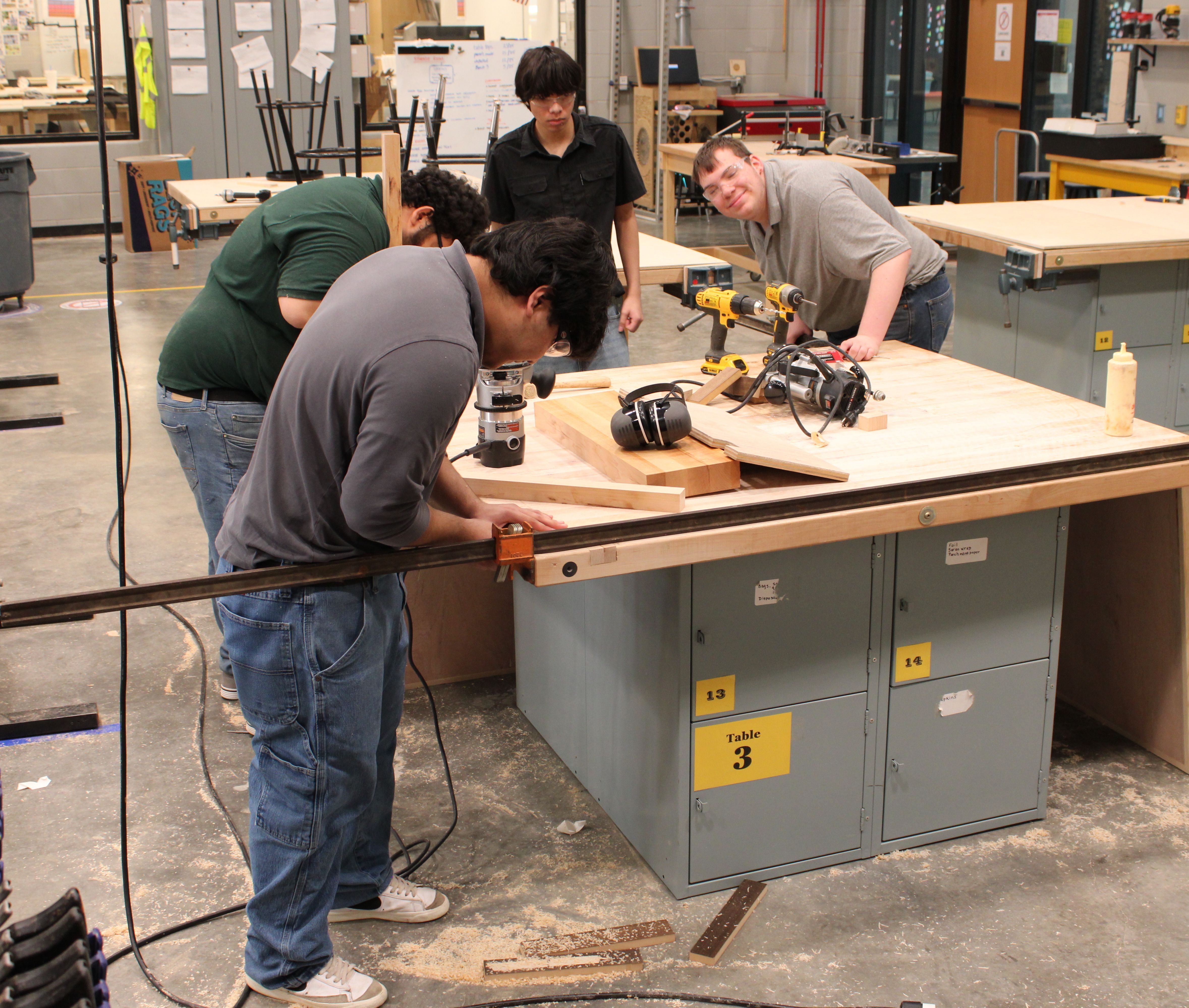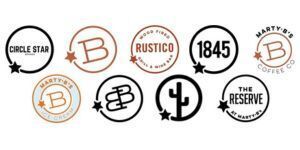
A new project is underway in Michael Rowan’s wood manufacturing technology class at Technology, Exploration, & Career Center West (TECC-West). An LEF teacher grant funded by the CoServ Charitable Foundation allowed Rowan to purchase wood needed for students to rebuild work benches—the backbone of any woodshop—in his classroom.
During this project, Rowan’s students improved work benches by adding a maple base to bring the benches up to a more comfortable work height. After other improvements were finalized, the bench tops will be fit with ½” sacrificial tops that can be sanded, cleaned, and exchanged for new tops as they experience wear and tear.
Through these various projects, students in Rowan’s class develop several skills that are necessary in any field. By planning, managing, and exercising technical skills, students learn about more than just wood working.
"Cabinetmaking is an intersection of many mental and physical skills,” Rowan said. “We have mathematics, drafting creation and interpretation, project planning, material planning, technical knowledge of techniques and machinery, as well as an artistry to create a beautiful end-product. Woodwork and cabinetmaking are also great teachers of patience, process, and planning.”
Rowan began the project by briefing three of his third-semester students on the project details.
“During this phase we worked out all design and build issues,” Rowan said. “Two students spent around three weeks lifting lockers, building jigs, cutting plywood, and hanging panels. Students tended to gravitate towards what they were best at and separated into ‘departments’, some working the saws and tooling, others the finish and spray work.”
The project functioned like a project in a workplace setting with departments, supervisors, and employees. After three third-semester students completed the first work bench, 14 other students joined the project.
"The original 3 students split into 'departments' once again, only now with employees,” Rowan said. “My 'supervisors' got a hands-off role, teaching, and monitoring quality as we worked.”
Rowan used this project to take a new approach to the class capstone project, utilizing cumulative knowledge students gained throughout the course. In the past, wood manufacturing technology capstone projects were done individually. Rowan noticed this didn’t allow students to practice soft skills that would be necessary in the workplace, so he pivoted. This format allowed students to pursue technical skill while also developing interpersonal skills.
"Taking on individual projects does not require students to depend on one another as a team to achieve success,” Rowan said. “Team projects in the latter half of our course are ultimately going to better prepare them for the workplace. As a builder myself, taking part in group synthesis to deliver on big projects is a great confidence and community builder in the classroom.”
As a group, students showcased skill and technical ability while navigating 'workplace' conflict and meeting deadlines.
“Although we measured success on project completion, the real success for me was seeing students coordinate, communicate, and think their way through common manufacturing issues,” Rowan said. “For a few examples, we had two sets of students working on the same item (breakdown in communication, making too many parts), we had certain equipment go down and needed solutions for how to keep the deadline, and we had other maintenance issues uncovered while reworking the tables which added time to their production.”
Navigating these challenges while still working to produce a quality product gave students a wealth of experience and knowledge. Woodworking allows students to develop a skill they enjoy, while also practicing several other skills. These skills are beneficial in several work fields.
The LEF grant Rowan received allowed his students to engage in exciting learning opportunities.
"Without the LEF grant we could not have afforded this,” Rowan said. “One of the more challenging aspects of my class is getting the materials for them to practice on without charging it to the students, lumber is expensive!”
Rowan appreciates this grant which allowed him to implement a project that will benefit his students and his classroom for years to come.



























